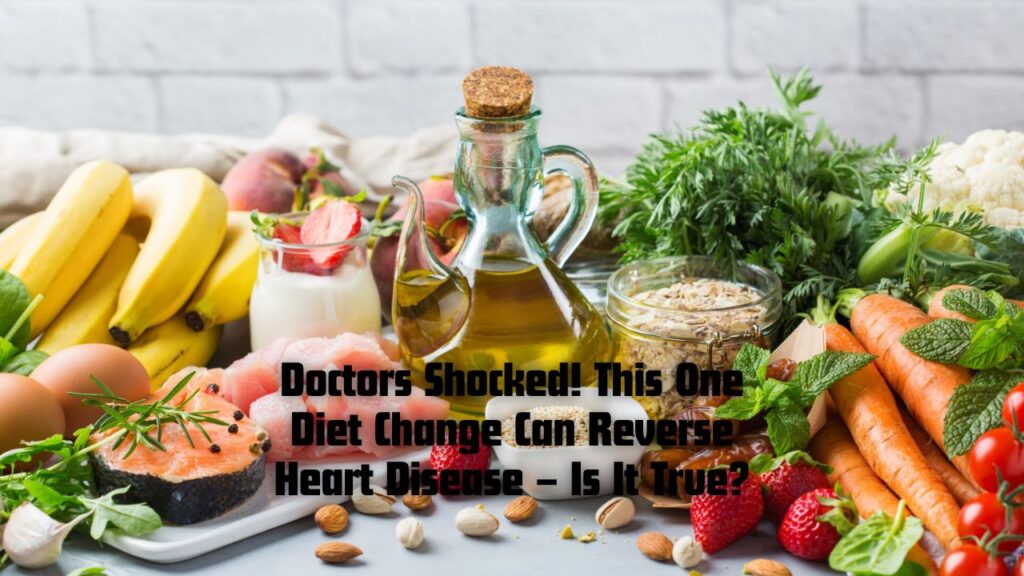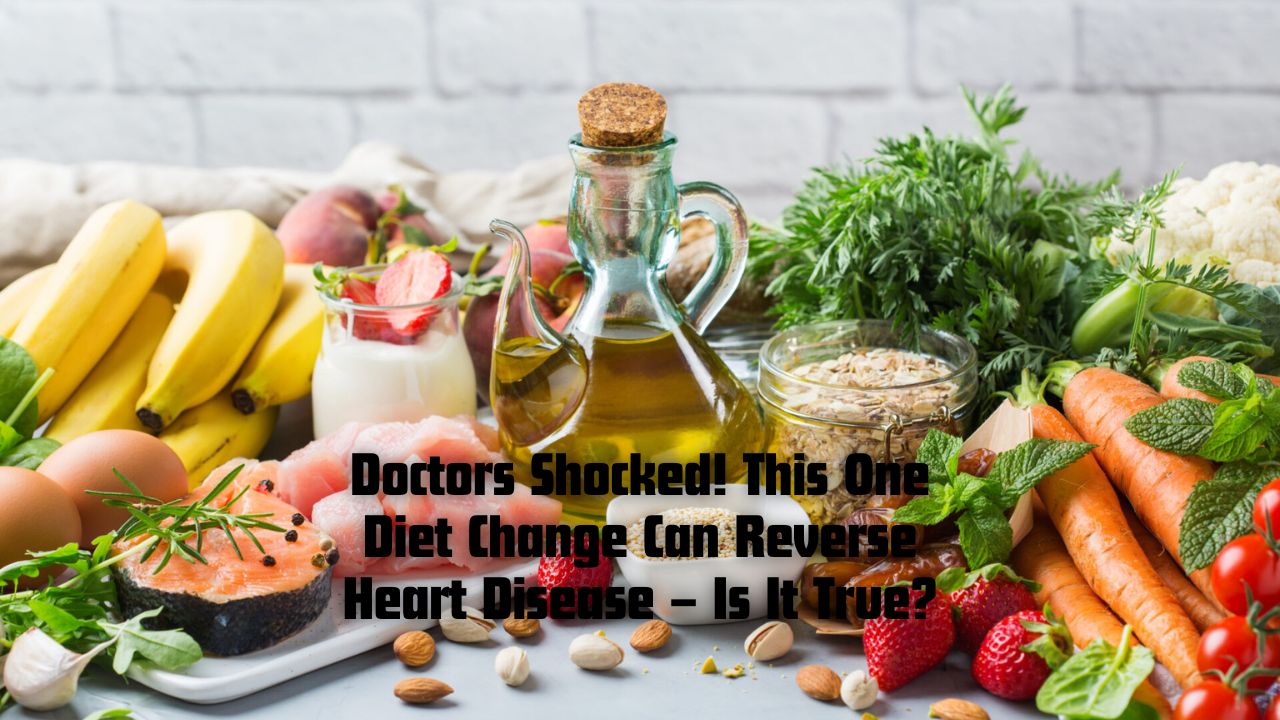Can a Vegetarian Diet Reverse Heart Disease? Experts Reveal the Truth!
Heart disease is one of the leading causes of death worldwide. Many people suffer from high blood pressure, blocked arteries, and heart attacks. Doctors and researchers have long searched for ways to prevent and reverse heart disease. One possible solution is a vegetarian diet. But can it actually reverse heart disease? Experts say it might be possible!
A vegetarian diet is rich in fruits, vegetables, whole grains, nuts, and legumes. It avoids meat, fish, and poultry. Many experts believe that eating plant-based foods can help improve heart health. In this article, we will explore the connection between vegetarianism and heart disease, what experts say, and whether switching to a vegetarian diet can truly heal your heart and arteries.
What Causes Heart Disease?
Heart disease happens when the arteries that supply blood to the heart become clogged or narrowed. This can lead to chest pain (angina), heart attacks, or strokes. The main causes of heart disease include:
- High cholesterol (caused by eating too much fatty food)
- High blood pressure (caused by stress, poor diet, and lack of exercise)
- Obesity (being overweight can put extra pressure on the heart)
- Smoking and alcohol consumption
- Lack of exercise
- Unhealthy diet (eating too much processed and junk food)
Many doctors believe that changing your diet can help prevent and even reverse heart disease. This is where the vegetarian diet comes in.
How Can a Vegetarian Diet Help the Heart?
A vegetarian diet is full of fiber, vitamins, and antioxidants. These nutrients help in reducing cholesterol, inflammation, and blood pressure. Here’s how a vegetarian diet improves heart health:
- Lowers Cholesterol – Meat and dairy contain bad cholesterol (LDL), which clogs the arteries. A vegetarian diet is free from unhealthy fats, making it heart-friendly.
- Reduces Blood Pressure – Eating plant-based foods lowers blood pressure naturally, reducing the risk of heart disease.
- Prevents Obesity – Vegetarians usually weigh less than meat-eaters because plant-based foods have fewer calories and fat.
- Decreases Inflammation – Inflammation is a leading cause of heart problems. A vegetarian diet is rich in anti-inflammatory foods.
- Improves Blood Flow – Fruits and vegetables contain nitrates, which improve blood circulation and keep the heart strong.
By following a vegetarian lifestyle, people can reduce the risk of heart disease and possibly even reverse some damage.
Can a Vegetarian Diet Reverse Heart Disease?
Many experts believe that a strict vegetarian diet can help undo damage to the arteries. Dr. Dean Ornish, a well-known heart doctor, conducted a study showing that a plant-based diet can reverse heart disease. His research found that people who switched to a vegetarian diet had less plaque in their arteries and better heart health.
Other studies also show that vegetarians have a lower risk of heart disease compared to meat-eaters. Some patients who followed a strict vegan diet (no animal products at all) saw improvements in their heart condition. Their cholesterol levels dropped, their blood pressure improved, and their arteries became less clogged.
However, not all experts agree that a vegetarian diet alone can completely reverse heart disease. Some believe that exercise, stress management, and medication may also be needed for full recovery.
What Do Cardiologists Say?
Many cardiologists support a plant-based diet for heart health. Some doctors even recommend it to patients who suffer from high blood pressure, high cholesterol, and blocked arteries. According to the American Heart Association, eating more fruits, vegetables, and whole grains can reduce the risk of heart attacks and strokes.
Dr. Caldwell Esselstyn, a famous heart doctor, has helped many heart patients recover using a strict plant-based diet. He says that avoiding meat, dairy, and processed foods can help the heart heal itself.
However, doctors also say that simply removing meat from your diet is not enough. A healthy vegetarian diet should include whole, unprocessed foods. Eating junk food, too many carbs, or sugary foods can still cause heart problems, even if you are vegetarian.

Does a Vegetarian Diet Work for Everyone?
A vegetarian diet can be very effective for some people, but it may not work for everyone. Some people may have difficulty getting enough protein, iron, or vitamin B12 without eating meat. However, these nutrients can be found in beans, lentils, nuts, seeds, and fortified foods.
Some people may also struggle with food cravings or find it hard to give up meat completely. In such cases, a flexitarian diet (mostly vegetarian but with occasional meat) may still be beneficial. Even reducing meat intake can help improve heart health.
It’s important to talk to a doctor or nutritionist before making big diet changes. They can help you plan a balanced vegetarian diet to ensure you get all the essential nutrients.
Tips for a Heart-Healthy Vegetarian Diet
If you want to try a vegetarian diet to improve heart health, follow these simple tips:
- Eat More Fiber – Include whole grains like oats, brown rice, and quinoa to keep your heart healthy.
- Avoid Processed Foods – Stay away from fried, sugary, and packaged foods.
- Get Enough Protein – Eat beans, lentils, tofu, and nuts to meet protein needs.
- Use Healthy Fats – Choose olive oil, avocado, and nuts instead of unhealthy fats.
- Stay Hydrated – Drink plenty of water and avoid sugary drinks.
- Exercise Regularly – A good diet works best when combined with daily exercise.
By following these tips, you can enjoy a delicious and heart-friendly vegetarian diet while improving your overall health.
Conclusion: Should You Switch to a Vegetarian Diet?
A vegetarian diet can be a powerful tool in preventing and possibly reversing heart disease. Studies show that people who eat plant-based diets have lower cholesterol, healthier arteries, and a reduced risk of heart attacks.
However, diet alone may not be enough. Experts recommend combining a healthy diet with exercise, stress management, and regular medical check-ups. If you are considering switching to a vegetarian diet for heart health, consult a doctor or dietitian to make sure you get all the necessary nutrients.
While a vegetarian diet may not work for everyone, it is certainly one of the best ways to keep your heart strong and healthy!
FAQs:
1. Can a vegetarian diet really reverse heart disease?
Yes, studies show that a strict vegetarian or plant-based diet can help reduce cholesterol, lower blood pressure, and clear blocked arteries. Some research suggests that it may even reverse heart disease when combined with exercise and lifestyle changes.
2. How does a vegetarian diet help heart health?
A vegetarian diet is rich in fiber, antioxidants, and healthy fats. It reduces bad cholesterol (LDL), inflammation, and blood pressure, all of which are major risk factors for heart disease.
3. What foods should I eat to improve my heart health?
For the best results, eat:
- Fruits and vegetables (berries, spinach, kale, oranges)
- Whole grains (brown rice, quinoa, oats)
- Healthy fats (avocados, nuts, olive oil)
- Plant-based proteins (beans, lentils, tofu)
- Heart-friendly herbs and spices (turmeric, garlic, ginger)
4. Should I completely avoid all animal products?
To maximize heart benefits, experts recommend avoiding red meat, processed meats, and dairy. However, some people follow a flexitarian diet (mostly plant-based but with occasional meat or fish) and still see improvements in heart health.
5. Can a vegetarian diet lower cholesterol?
Yes! A plant-based diet is naturally low in saturated fats and high in fiber, which helps reduce bad cholesterol (LDL) and improve good cholesterol (HDL).
6. How soon can I see results from switching to a vegetarian diet?
Some people notice changes in cholesterol levels and blood pressure within a few weeks to a few months. Long-term benefits include a lower risk of heart attacks, strokes, and artery blockages.
7. Are there any risks to a vegetarian diet?
A vegetarian diet is safe, but you need to make sure you get enough protein, iron, vitamin B12, and omega-3 fatty acids. These nutrients can be found in beans, nuts, seeds, fortified foods, and supplements if necessary.
8. Do cardiologists recommend a vegetarian diet?
Yes, many cardiologists support a plant-based diet for heart health. Doctors like Dr. Dean Ornish and Dr. Caldwell Esselstyn have proven that a vegetarian diet can help prevent and even reverse heart disease.
9. Can I still eat processed vegetarian foods?
No, processed vegetarian foods (like chips, white bread, and sugary snacks) can still harm your heart. A heart-healthy vegetarian diet should focus on whole, unprocessed foods.
10. What other lifestyle changes should I make for heart health?
In addition to a vegetarian diet, experts recommend:
- Regular exercise (at least 30 minutes a day)
- Managing stress (through meditation, yoga, or deep breathing)
- Getting enough sleep (7-8 hours per night)
- Quitting smoking and limiting alcohol
Switching to a vegetarian diet is a powerful step toward a healthy heart, but it works best when combined with a balanced lifestyle!
